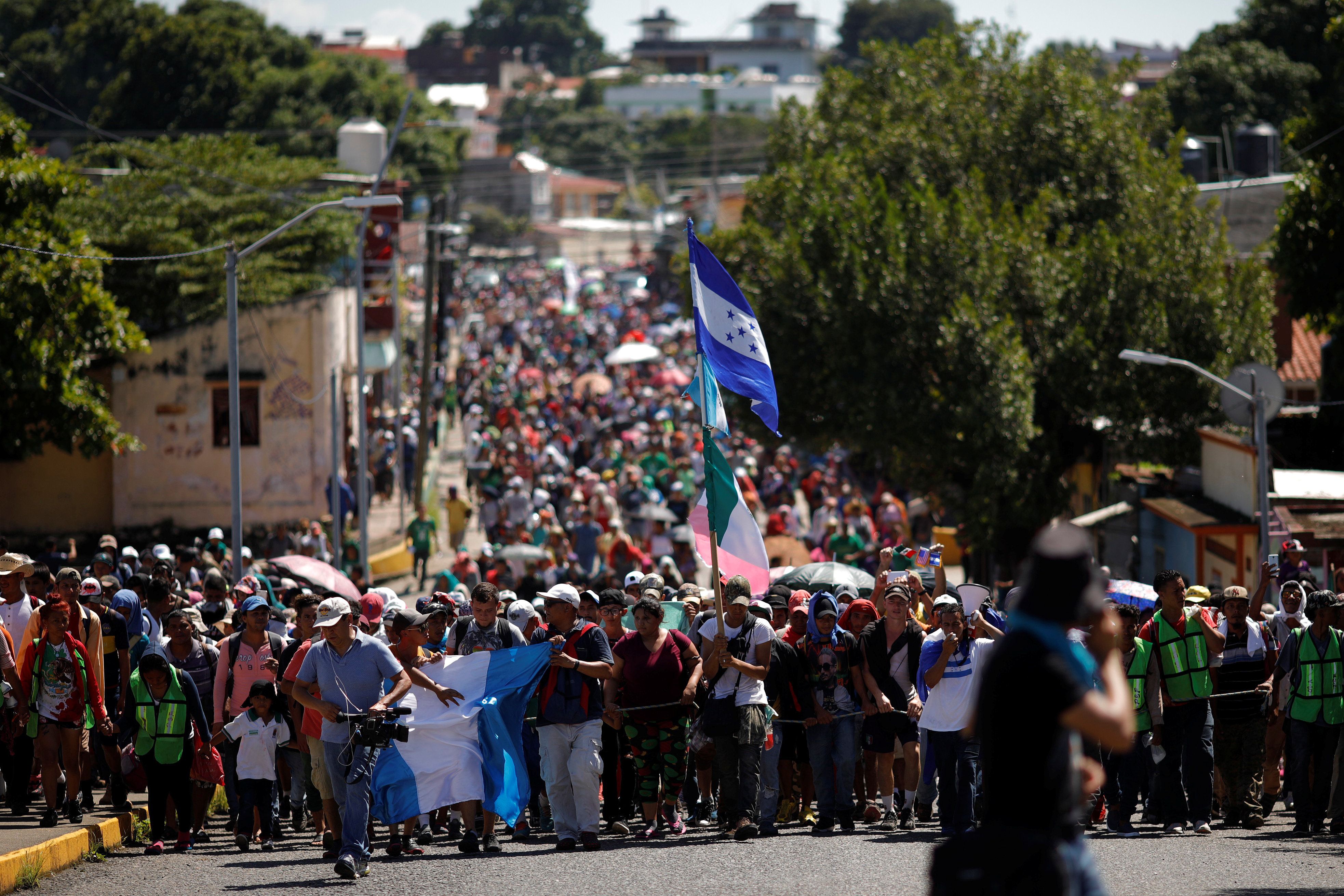With US elections less than two weeks away, another caravan of migrants is on the move from Guatemala, El Salvador, and Honduras across Mexico toward the US. It’s the latest version of a story we’ve talked about before—the politics of migration at the southern US border.
President Trump says he’s unhappy with the Mexican government for allowing these migrants to pass through Mexico unobstructed. He has threatened to cut aid both to the Central American countries the migrants have abandoned as well as to Mexico for allowing them through. Trump claims some of the migrants are “unknown Middle Easterners” and has warned that once they reach the border, the US military will be there to keep them out.
As we did six months ago, let’s look at this story from three angles.
The Migrants: Once again, a determined group of desperate people is moving toward the US border where they hope to apply for asylum in the United States. Some want to escape an epidemic of criminal violence that forces children into gangs with threats of death for themselves and their families. Others are fleeing poverty. Many feel they have little to lose and a brighter future to gain.
Mexico: Mexican voters elected a new president in July, and though Andres Manuel Lopez Obrador (AMLO) won’t take office until December, the people now listen to his views on the migrant question. Outgoing president Enrique Pena Nieto never settled on a clear response to previous caravans. Some migrants were deported; others were allowed to remain in Mexico.
AMLO risks the same muddled political message. He campaigned on promises to treat migrants with dignity and has pledged to offer more work visas to allow some Central American migrants to remain in Mexico. But he has also acknowledged that Mexico can’t simply welcome everyone that walks across its border illegally, and he knows he can’t ignore Trump’s economic threats.
Donald Trump: In less than two weeks, US voters head to the polls for midterm elections that will determine whether Donald Trump’s Republican Party can keep its congressional majorities. For him and his party, the migrant caravan is a political gift. Trump has no reason to expect votes for his party in 2018 or his re-election in 2020 from Democrats or political moderates. For Trump, as for Democrats, the key to victory is firing up loyal backers to ensure they actually vote. Immigration is an issue Republican voters care deeply about. On their TV channels and websites, Democrats see migrants depicted as desperate families with children making the hopeful journey toward a better life. Conservative media confronts Republican voters with images of riotous young men climbing fences and ignoring laws. Both sets of images simplify a complex reality.
In the final days before Americans vote, Democrats will try to focus voters on health care and other “pocketbook issues.” Trump, who continues to frame this vote as a straight-up referendum on his presidency, will continue to talk about the caravan at rallies, on TV, and on Twitter.
And the migrants will continue to make their way north.
